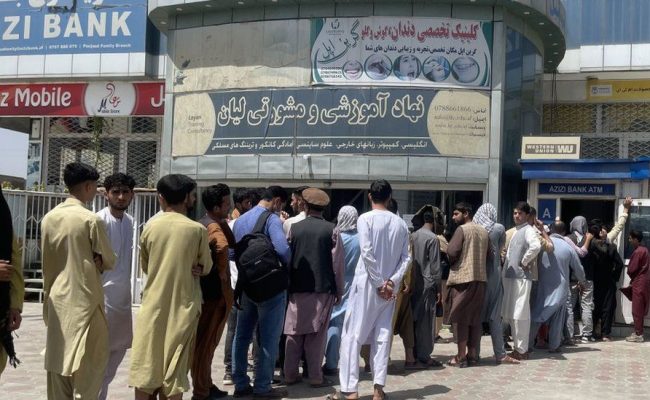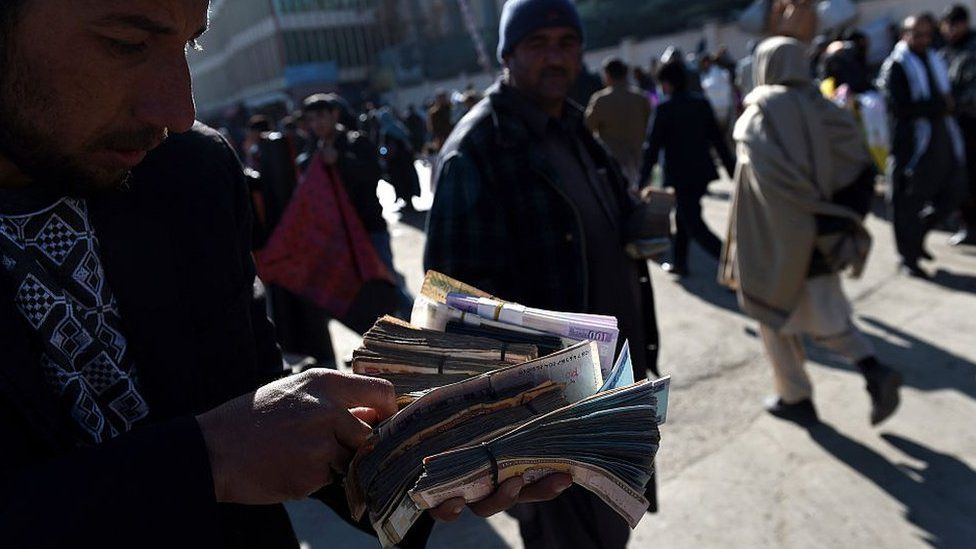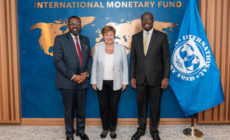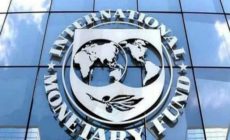IMF suspends Afghanistan’s access to funds
- Posted on
- Comment

The International Monetary Fund (IMF) has said Afghanistan will no longer be able to access the lender’s resources.
The move follows the Taliban’s takeover of the country last weekend.
An IMF spokesperson said it was due to “lack of clarity within the international community” over recognising a government in Afghanistan.
Resources of over $370m (£268m) from the IMF had been set to arrive on 23 August.
These funds were part of a global IMF response to the economic crisis.
Access to the IMF’s reserves in Special Drawing Rights (SDR) assets, which can be converted to government-backed money, have also been blocked. SDRs are the IMF’s unit of exchange based on sterling, dollars, euros, yen and yuan.
As is always the case, the IMF is guided by the views of the international community,” the spokesperson added.
It comes after an official from the Biden administration told the BBC that any central bank assets the Afghan government has in the US will not be made available to the Taliban.
In a letter to the US Treasury Secretary Janet Yellen, Congress members called for assurances that the Taliban would receive no US-backed aid.
“The potential of the SDR allocation to provide nearly half a billion dollars in unconditional liquidity to a regime with a history of supporting terrorist actions against the United States and her allies is extremely concerning,” 17 signatories wrote.
Earlier, the head of Afghanistan’s central bank said the US had cut off access to its assets – around $7bn of which are held at the U.S. Federal Reserve.
Ajmal Ahmady, who fled the country at the weekend, tweeted that Da Afghanistan Bank’s total reserves were approximately $9bn as of last week.
But he said as per international standards, most of this was held in safe, liquid assets such as US Treasury bonds and gold offshore.
“Given that the Taliban are still on international sanction lists, it is expected (confirmed?) that such assets will be frozen and not accessible to Taliban,” Mr Ahmady tweeted.
“We can say the accessible funds to the Taliban are perhaps 0.1-0.2% of Afghanistan’s total international reserves. Not much.”
Mr Ahmady added that Washington’s suspended shipments of physical dollars were causing Afghanistan’s currency to depreciate. The Afghan currency, the Afghani, has fallen to record lows.
“I believe local banks have told customers that they cannot return their dollars — because [Da Afghanistan Bank] has not supplied banks with dollars,” he tweeted.
“This is true. Not because funds have been stolen or being held in vault, but because all dollars are in international accounts that have been frozen.”

In June, the IMF gave Afghanistan its latest loan instalment which was approved in November. In the same month, the UN published a report which stated that the “primary sources of Taliban financing remain criminal activities,” including “drug trafficking and opium poppy production, extortion, kidnapping for ransom, mineral exploitation and revenues from tax collection in areas under Taliban control or influence.”
The World Bank also funds many development projects in the country and has provided Afghanistan with $5.3bn since 2002. It has not yet responded to the BBC’s request for comment on the current status of this funding.
Independent money transfer giant Western Union has also suspended money transfer services to Afghanistan “until further notice”.
The IMF has taken similar steps against other regimes not recognised by a majority of its members. This happened in April 2019 when SDR access was blocked after more than 50 member countries refused to recognise President Nicolas Maduro as the legitimate leader of Venezuela. The IMF also halted payments to Myanmar after the military junta seized control.
On Monday, the IMF will complete a $650bn allocation of SDRs to its 190 member countries.
-BBC










 (Selorm) |
(Selorm) |  (Nana Kwesi)
(Nana Kwesi)